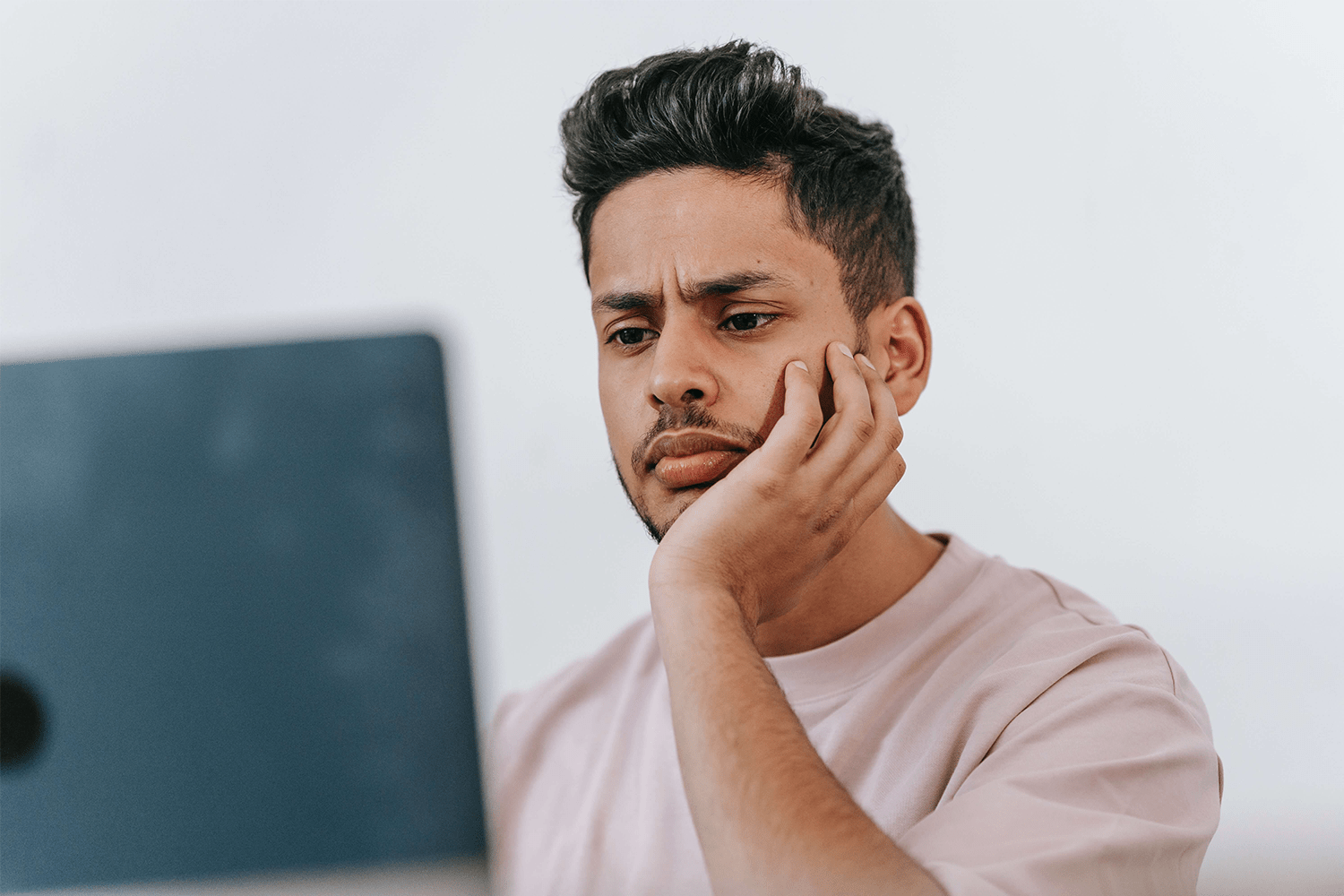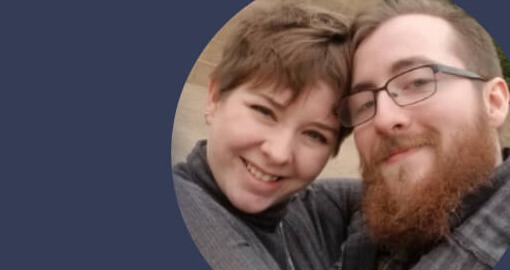Written by Shannon,
Brightside Health
8 Minute Read

Medically reviewed by:
Erin O'Callaghan, PHD
Director of Therapy
10 Minute Read

Let’s be honest, focusing on things like work and school can sometimes be challenging. It’s quite common for people to sometimes get distracted easily or forget what they were doing in the first place. This can affect all facets of your life, both big and small.
While trouble concentrating can be caused by something as simple as stress or lack of sleep, it can also be a symptom of depression or anxiety. Here’s what you need to know about possible reasons why you’re having trouble concentrating, and what you can do to help improve it.
Want to speak 1:1 with an expert about your anxiety & depression?
What are signs that you’re having trouble concentrating?
Lack of concentration can affect people very differently. You might experience a number of symptoms such as:
- Making careless mistakes
- Difficulty sitting still
- Unable to make choices
- Lack of mental energy
- Losing things
- Forgetting things that just happened
Your lack of focus can also be worsened by several external factors such as your environment, the time of day, and the task at hand. However, you’ll likely notice after a while that you’re experiencing one or more of the symptoms we mentioned.
Top 5 reasons for concentration problems
There are times when a lack of concentration comes on suddenly. This type of concentration struggle likely doesn’t have a serious underlying condition to address.
Let’s go over the four most likely causes for concentration problems:
- You’re tired. Whether you are dealing with a lot of stress, can’t help but watch one more TV episode late at night, or are having trouble calming your mind before bed, a lack of sleep can impact your ability to focus. In fact, there is a direct correlation between sleep deprivation and impaired cognitive function. This includes your working memory and your cognitive speed. There is even evidence that depriving your brain of enough rest can cause brain cell damage.
- Everyday life is getting in the way. When you have a lot going on at home, it can be difficult to focus on work, and vice versa. Your emotional state is tied to your focus, so when you are excited about something, it causes your adrenaline to increase. Too much of this can cause anxiety, create an inability to concentrate, and actually decrease your ability to work throughout the day.
- You’ve got too much going on. Even though the multitasking method of productivity isn’t always bad, having too many things on your plate can cause trouble focusing on just one thing. Multitasking often causes a lower quality of work, as well as frustration and stress.
- You don’t like the task that you’re doing. When we want to avoid doing something, we often make excuses about it and try to do anything else instead. This lack of concentration is mostly caused by procrastination and not the inability to concentrate.
- You have undiagnosed mental health or physical health condition. It’s possible your lack of concentration is due to a medical cause.
Medical causes of an inability to concentrate
Lack of concentration can also be a sign that there is something more going on. It may be a symptom of a medical or mental health condition like post-concussion syndrome or anxiety.
Here are some of the disorders and conditions that could be related to lack of focus, though it’s important to note this is not an all-inclusive list.
- ADHD, attention deficit hyperactivity disorder, is a condition that begins in childhood—though sometimes symptoms are missed and people with ADHD aren’t diagnosed until later in life. People with ADHD may have trouble concentrating, experience hyperactivity, or both.
- A concussion could also be the cause of a lack of concentration. This occurs from a mild blow to the head which can cause memory loss, vomiting, and fatigue.
- Dementia is a group of conditions that are characterized by a loss of memory and impaired judgment which usually occurs in older people. Sometimes, dementia can also present as poor concentration or a lack of focus.
- Insomnia is characterized as difficulty falling and staying asleep. As we discussed before, a lack of sleep can cause difficulty concentrating.
- Depression is a mental health disorder characterized by depressed moods and a loss of interest in activities. Depression can cause concentration problems and trouble focusing.
- Anxiety is an intense and persistent worry and fear about everyday situations. There are many forms of anxiety disorders, including generalized anxiety disorder, social anxiety disorder, panic disorder, and more—each presenting with different signs and symptoms, including trouble concentrating.
Many of these conditions and disorders can be treated using medication and evidence-based therapy like Cognitive Behavioral Therapy (CBT). Anxiety and depression are common mental illnesses—with 18.1% and 6.7% of U.S. adults respectively experiencing these each year. These conditions are highly treatable with therapy and psychiatry.
If you think you may be experiencing anxiety or depression, or if you are having trouble concentrating, Brightside is a great place to start.
Brightside is a telehealth company that provides therapy and medication that’s accessible and affordable. We provide a clear path that’s guided by a team of psychiatric providers, therapists, and tech, personalized to you.
How to manage difficulty concentrating
Get quality sleep. Letting your body rest and repair itself for at least seven to eight hours a night can help prevent distraction. If you’re having trouble sleeping, here are some tips:
- Try to create a consistent schedule for when you sleep and when you wake up—and do your best to stick to it, even on weekends.
- Stop using screens, including your phone, at least 30 minutes before you sleep.
- Try not to drink alcohol or caffeine, or eat a meal or snack, too close to bedtime. Watch out for sneaky sources of caffeine, like chocolate.
- Make sure you have a comfortable sleeping environment. Walking into a bedroom that feels calm and comfortable can help you relax before bed.
- A bedtime routine can also help prepare your mind and body for a well-deserved sleep. Maybe you always read a few pages of a book before bed, or have a warm cup of herbal tea (uncaffeinated) an hour before sleep. Try a few options and see what works for you.
Take small breaks. Taking a few short breaks throughout the day can be a good way to reenergize if you’re feeling sleepy. Try a short walk outside or do a few stretches if you are having trouble concentrating. A quick refresh might help a lot.
Skip the caffeine. You might think that grabbing another cup of coffee will help you focus, but it can actually do the opposite. Caffeine can cause you to feel jittery and restless instead of calm, cool, and collected. That jittery feeling may cause trouble concentrating. Instead, drink a glass of water to keep yourself hydrated.
Exercise as many days as you can. You don’t have to do intense activities to reap the benefits of exercise on concentration. Simply taking your pet for a walk or going for a bike ride can help. The key is to find an exercise you enjoy so that you can stick with it consistently. Whether it’s a sport, weekend hike, or morning walk in a nearby park with a friend, try to incorporate activity into your daily routine.
Eat nutritious foods. Don’t forget about the importance of a well-balanced diet. Living off of unhealthy food may negatively affect your focus and energy levels. Your body needs protein and nutrients to function at its best. Try to eat fruits, vegetables, whole grains, and lean sources of meat.
If you think your inability to concentrate might come from an underlying condition like anxiety or depression, it could be time to talk to a professional. Getting help can be intimidating, but it’s always a step in the right direction. If you aren’t sure where to begin, you can start a free assessment.
When To Seek Professional Help
It’s essential to know when a lack of concentration could be disrupting your life. If you are dealing with anxiety or depression, you don’t have to do it alone. Professional resources like Brightside Health are available to help you mitigate the symptoms and reclaim focus.
When anxiety or depression keeps you from sleeping, eating, working, social interactions, running daily errands, or simply causes trouble concentrating during a conversation, you should reach out and seek help. If these feelings last for 3 months or longer, it is more than likely time to speak to a therapist and get treatment.
You should make an appointment to see a mental health professional if you are experiencing:
- consistent decreased work performance
- difficulty sleeping
- concentration problems
- memory loss that’s worse than usual
- unusual tiredness
The Bottom Line
There are plenty of reasons that you could be experiencing a lack of concentration. The first step for helping yourself is figuring out the root cause of your lack of focus and getting treatment.
We all know that there are some days when you can’t seem to get anything done and you don’t know why. We’re only human, so remember to cut yourself some slack once in a while.
If you’re seeking help for anxiety or depression, Brightside can help. Our questionnaire only takes a few minutes to fill out, and you can start receiving treatment within 48 hours. It’s that easy.
Sources:
https://www.thieme-connect.com/products/ejournals/abstract/10.1055/s-0029-1237117



















